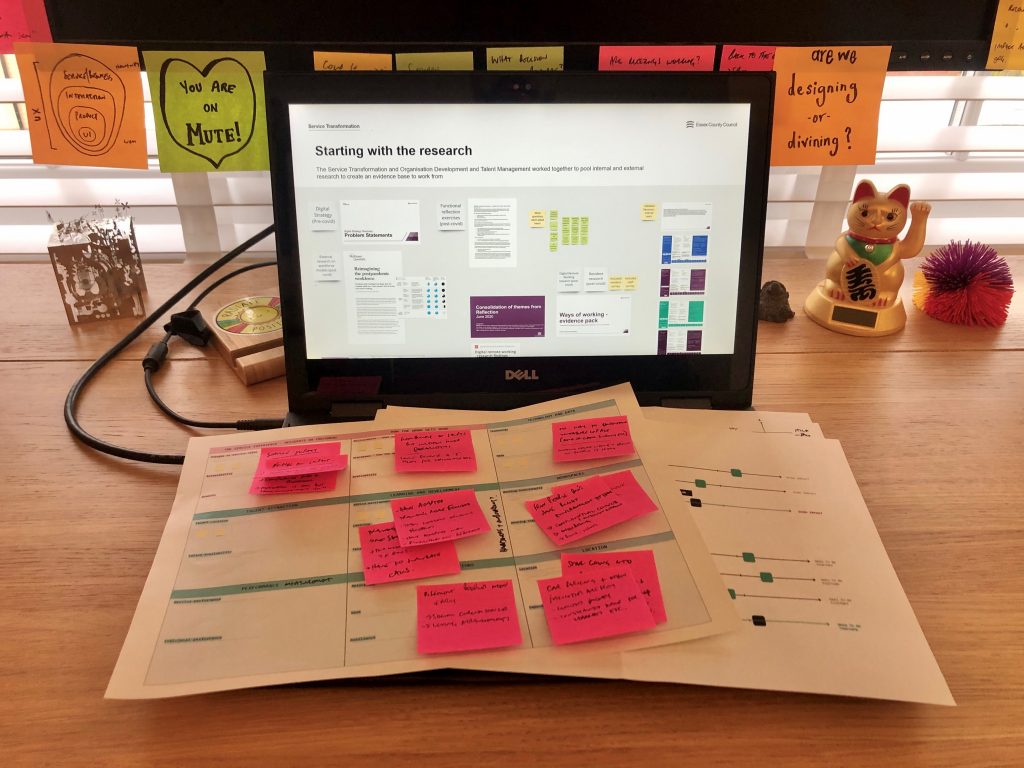
Like many organisations, due to lockdown, Essex County Council had to move to remote working overnight. In our previous posts we spoke about how we researched the impact of lockdown on how we worked and showed you the findings. Well, we haven’t left the research there. We’ve continued to take this work and findings forward.
Why we’re looking at new ways of working
The impetus for this work came from our Chief Executive, Gavin Jones. He believes, that through technology, "we could change the way we operated as a council, where we had always assumed people would have to be in the offices performing their duties, the technology proved that that wasn’t necessary."
This was an opportunity to look at future ways of working in ways we never thought possible. As an organisation, however, we had no experience of large-scale remote working. Senior leaders needed to know they were making the right decisions as this was also new to them. This is where the solid evidence from our recent discovery into remote working comes into play.
Our research recommended a hybrid approach as the most successful model for remote working.
One size doesn’t fit all
Our council is big. We have over 8,000 staff who deliver multiple services to the nearly 2 million residents in Essex. Each service has different needs. Each requires a different hybrid model.
What is clear to us is that a hybrid approach is the right one for our needs. And we’ve got the evidence to prove it.
Understanding residents’ needs
A Ways of Working programme was set up. As part of this programme we’re talking to residents to plug gaps in our understanding. Residents’ needs are at the heart of this work. We want to get their views on how remote working due to coronavirus (COVID-19) affected our service delivery. How do residents now interact with our services? What are their changing needs and expectations?
Our initial research with residents suggested that, for some (around 1 in 4), the support they needed from ECC had changed as a result of the pandemic. This was due to reduced access to social supports (due to social distancing), increased stressors and difficulties in accessing local support services.
Generally, most residents (84%) were happy with how services had been delivered post lockdown. They said that online services were managed well and in-person services were delivered safely.
Some residents, however, reported that early on in lockdown, they had difficulty in accessing services, and that had caused some frustration and anxiety.
More research is planned to explore resident experiences in greater detail.
Talking to staff
The physical and mental wellbeing of staff is also at the centre of this programme. The digital remote working discovery included a survey and diary studies with staff.
This research was conducted early on in lockdown and we are mindful of the need to align it with recent research. So, we’ve been working alongside the Organisational Development and Talent Management team to look at the latest staff survey and join the dots between previous and new research.
User research: 1/3 doing, 2/3 communicating
We’ve created an evidence pack that contains all the things we’ve learnt. This is helping team leads to make evidence-based decisions. We’re not just throwing it over the fence to them, and Narelle is running sessions with the leads and business partners. These sessions will communicate the nuances of the evidence to leads and senior partners. This should give them a robust base to confidently use the evidence in making decisions for their teams.
One approach, many models
As mentioned earlier, one size won’t fit all. Our user researchers are working closely with service design and many areas of the organisation to help design a ‘hybrid model tool’. This will enable the right conversations to happen across the council and can help us work out what works best for each service.
We’re currently prototyping it, so watch this space for a blogpost about how we're getting on.
Leave a comment